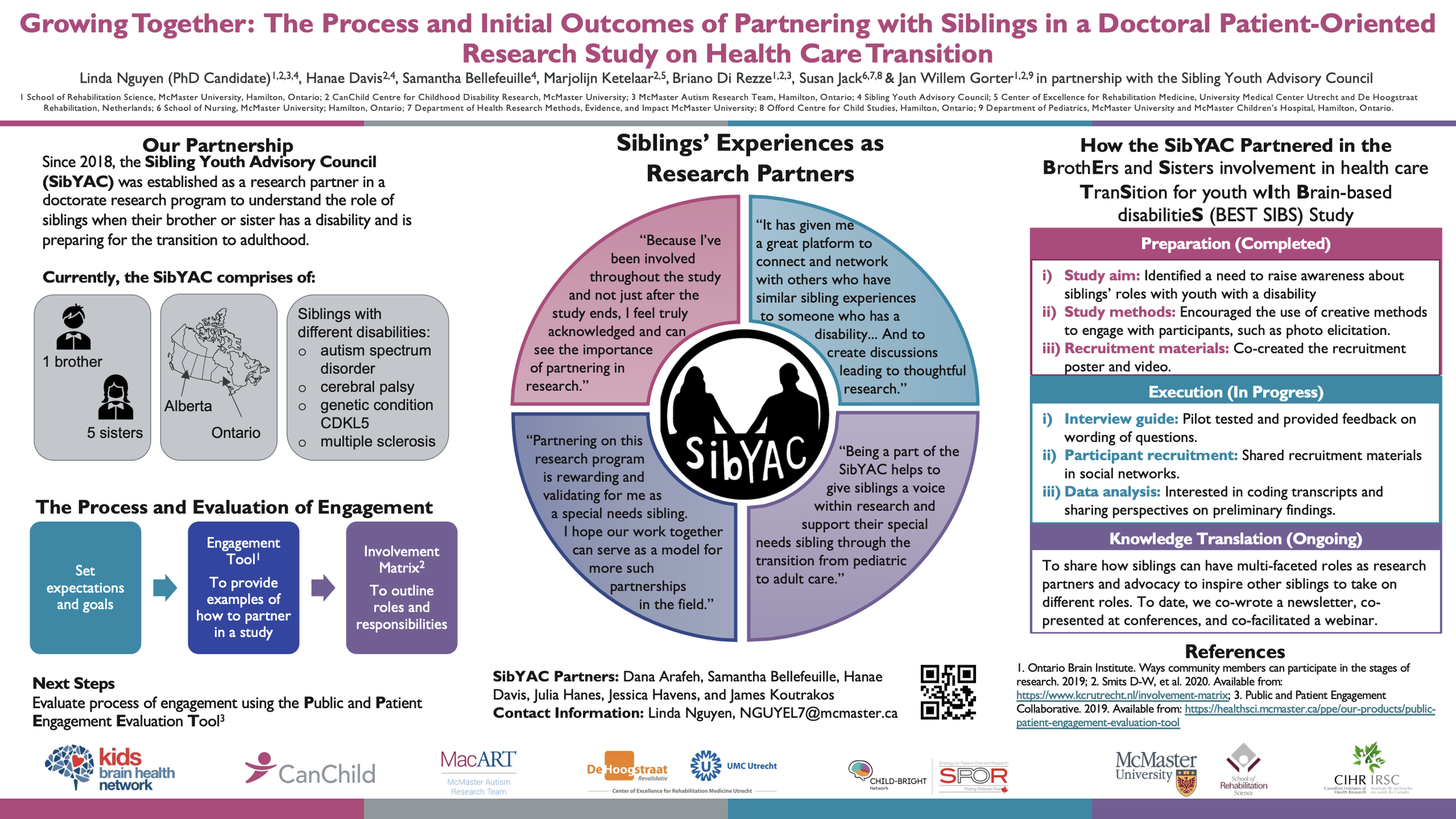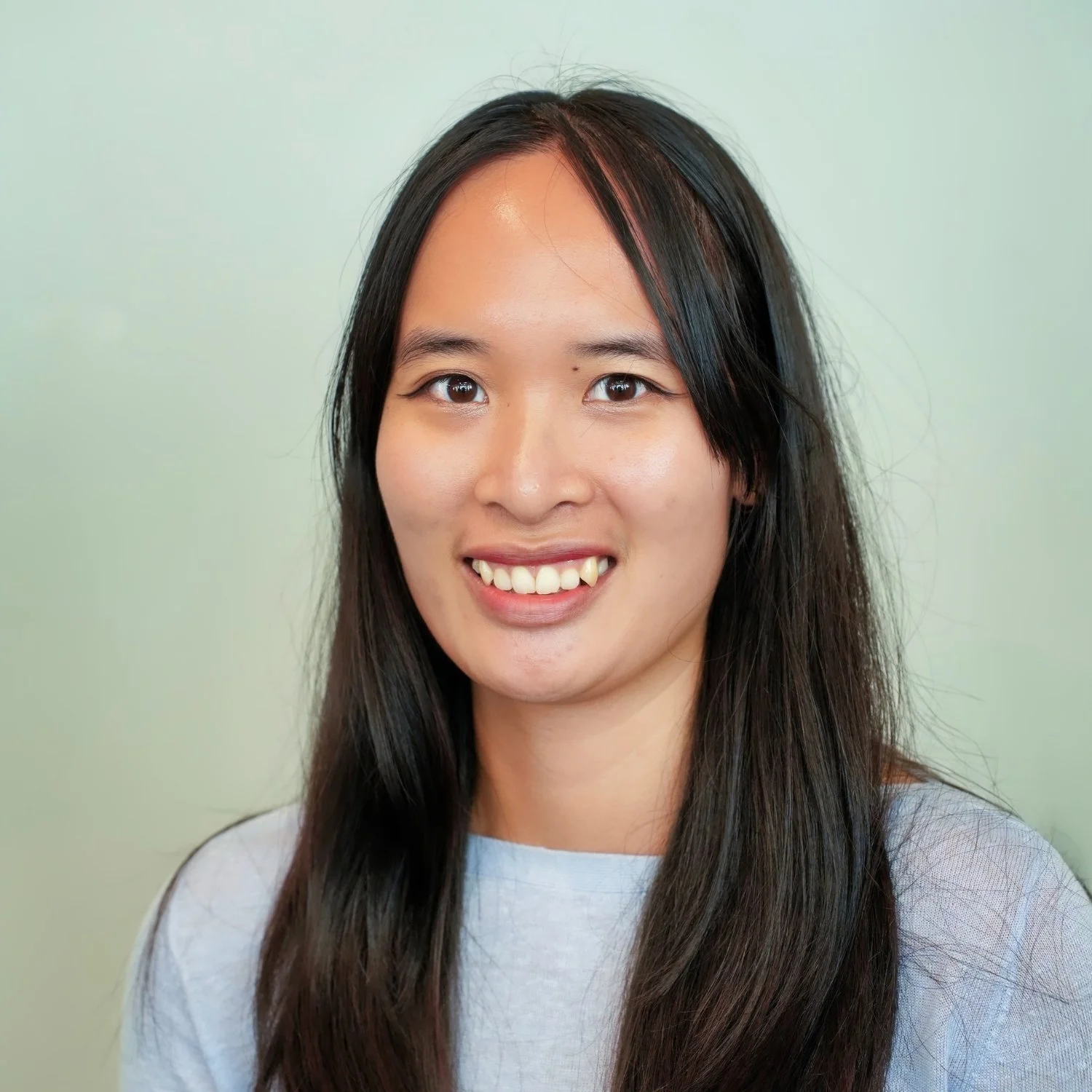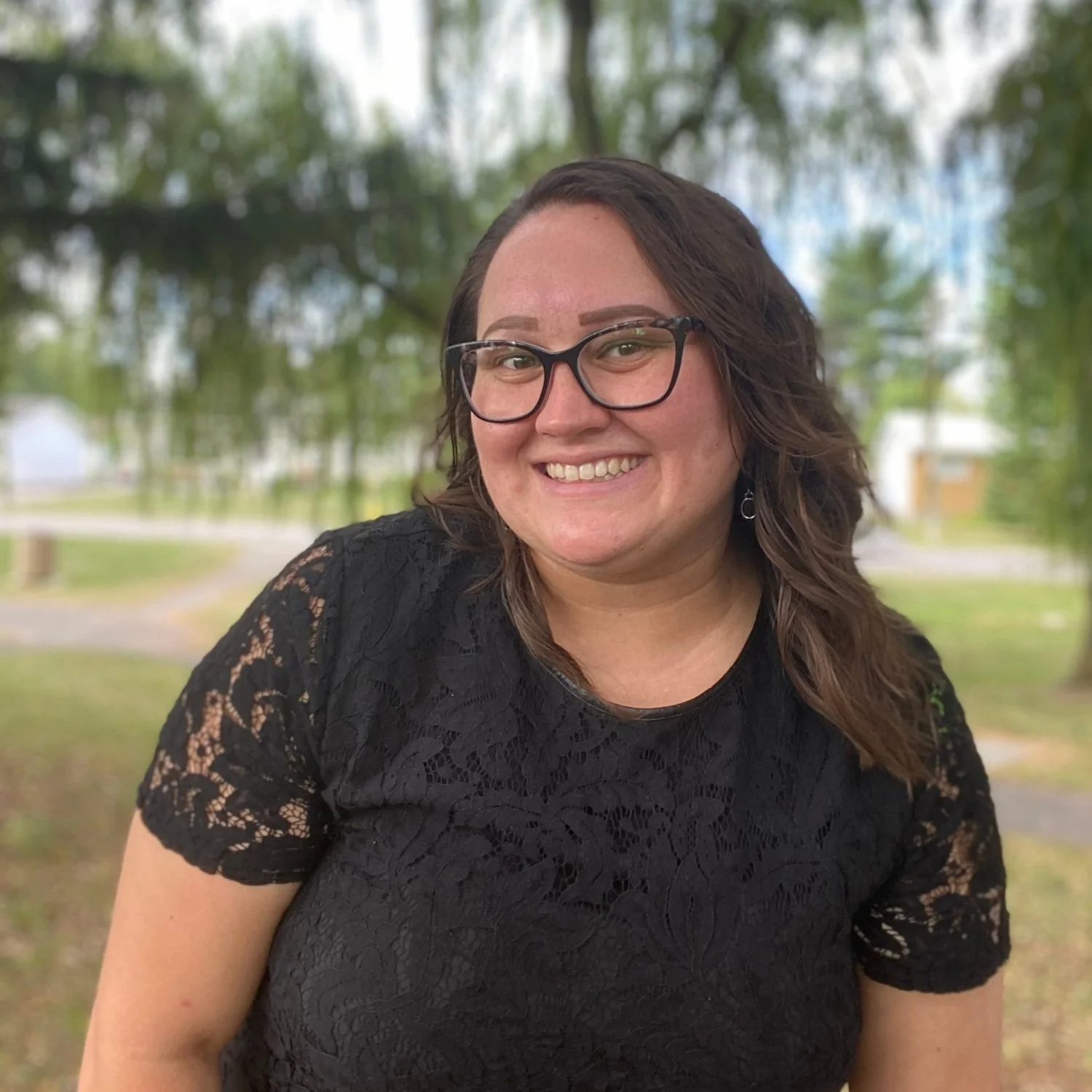Side by Side: Siblings, Disability & Peer Support
Siblings often stand in the background of disability narratives, visible yet rarely centred, present yet seldom asked how the system looks and feels from their vantage point. This conversation places sibling experience at the core and follows it all the way through the mechanics of research, the ethics of sharing, and the practice of digital storytelling as both a personal process and a public-facing tool. The arc begins with a clear truth: sibling roles are plural and fluid—caregiver, advocate, friend, guardian, historian of family memory—shifting with age, context, and the demands of daily life. Rather than mapping those roles as fixed labels, the episode explores how they evolve across a lifespan and how that evolution calls for more thoughtful engagement by researchers, clinicians, and organizations that often default to parent-centred frameworks. When siblings are invited to co-create research agendas and media, their insight changes what gets measured, what gets taught, and ultimately what gets funded. That shift is both methodological and cultural, pushing the field toward participatory research, trauma-informed facilitation, and plain respect for the labor behind lived experience.
Read the research article here
The creation and use of digital stories sits at the center of this shift. A digital story is not a quick testimonial or a staged anecdote—it is a crafted, consent-based piece of media that blends voiceover, personal images, and careful editing to carry emotional and factual weight without demanding repeated live retellings. Here, the storymaking process is described in full colour: the long drafts, the rewrites, the search through twenty years of photos, the decision to keep the first screening intimate within the Sibling Youth Advisory Council (SibYAC) group, and the ongoing negotiation of where and how the story can travel. That craftwork matters because the product becomes a training tool for clinicians, social workers, and allied health students who may never have heard a sibling articulate the practical and emotional load of coordinating appointments, holding night jobs, and stepping into guardianship while trying to build a life. Embedded in the process is a strong ethic: the storyteller owns the story; consent is specific and revisitable; compensation recognizes time and emotional labor; and the sharing plan protects the storyteller’s dignity while maximizing impact where it counts—education, policy, and peer connection.
Co-Created with Krystle Schofield Stories
The episode also shows how digital storytelling feeds program design and advocacy. Samantha’s narrative doesn’t just chronicle childhood moments and sibling bonds; it connects directly to the origin of Fostering Forever Friendships, a day program she founded to bridge the gap after school ends. That throughline—lived barrier to solution-building—offers a blueprint for socially grounded innovation: pinpoint a structural gap (no daycare would take her brother, adult day options were scarce), build a community response, then use media to explain the why without collapsing a person’s life into “inspiration.” The story becomes infrastructure for clarity, onboarding, and authentic representation. For researchers and nonprofits, this approach improves stakeholder engagement: it clarifies goals, reduces extractive “tell it again” requests, and creates a reusable artifact that can be screened at conferences, in classrooms, and across professional training networks. As clinicians reflect on these stories, they adjust micro-practices—greeting siblings, inviting them into care tasks, asking what support looks like—small moves that ripple outward into better experiences and outcomes.
Episode 43 Key Messages
2:27 What SibYAC Is and Why It Exists
4:16 Bringing Siblings Into Research
8:20 From Conference Spark to Workshop
10:32 Samantha’s Story: Many Roles, One Life
13:05 From Childhood Moments to Guardianship
19:05 Funding and Valuing Lived Experience
21:10 Ethics, Consent, and Story Ownership
22:40 Story Screenings: Shared Feelings, Different Paths
26:10 Where Stories Live and How to Share
Looking ahead, Linda and Sam outline a toolkit for siblings that pairs practical prompts with digital stories and reflection questions. It’s meant to be a living resource for youth and young adult siblings navigating identity, school, work, and care. By planning future workshops and screenings at events like the Patient’s Voice Conference, they aim to normalize arts-based methods in health research—formats that respect complexity and resist flattening people into data points. The deeper takeaway is that story work is also systems work: when ownership is honoured, when consent is real, when compensation is standard, narratives don’t just move hearts; they change practices. For families, providers, and researchers who want to do better by siblings, this is a model worth adopting: co-create, slow down, ask the right questions, and let the people most affected decide how their stories will live in the world.
About Our Guests
Linda Nguyen is an Azrieli Accelerator Assistant Professor in Youth, Sibling, and Community Engaged Research in the Faculty of Social Work at the University of Calgary. She established the Sibling Youth Advisory Council (SibYAC) in 2018 during her doctoral studies and continues to partner with them in research. Her program of research includes co-creating programs and resources to support siblings, who are youth and young adults, and have a sibling with a disability and/or health condition.
Samantha Bellefeuille is a sibling partner with the Sibling Youth Advisory Council and Children's Hospital of Eastern Ontario (CHEO) who has a younger brother with CDKL5. She is the Executive Director and Founder of a day program for adults with exceptionalities called Fostering Forever Friendships, in Ottawa, Ontario.
About Co-Created
Co-Created is a podcast that takes you behind the scenes of digital storytelling. On each episode, host Kristy Wolfe dives into conversations with the storytellers and facilitators who bring digital stories to life.
If this particular conversation resonated with you, tell a friend or a colleague about Co-Created or share one of the digital stories we were talking about. You can find the stories here.
Co-Created is presented by Common Language DST, digital storytelling facilitation training for health and wellness changemakers and is supported by the team at Snack Labs.





